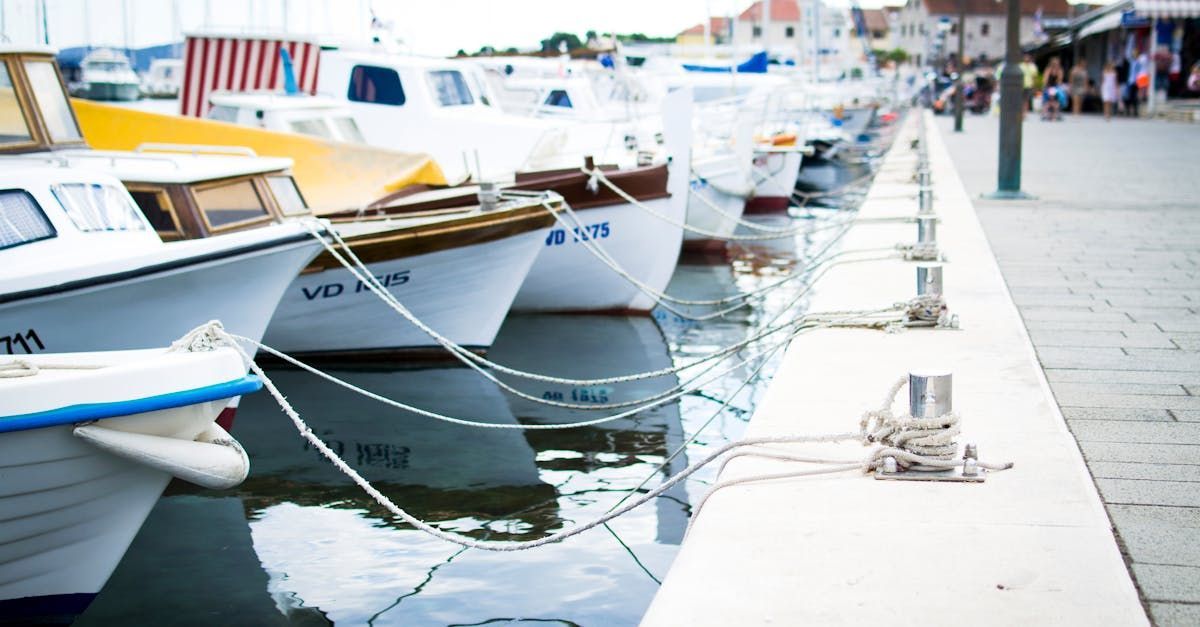Serving: Charleston - Edisto Island - Hollywood - Beaufort - Bluffton - Hilton Head
Expert Guide to Commercial Marina Building

Creating a successful commercial marina requires a blend of engineering precision, environmental consideration, and an understanding of the needs of the boating community. Commercial marina building involves planning, design, construction, and maintenance tailored to support a wide range of maritime activities. This article provides an in-depth look at the essential aspects of building a commercial marina while addressing the various challenges and opportunities associated with this complex task.
Key Takeaways
- Commercial marina building involves intricate planning and coordination.
- Essential components include dock systems, boat lifts, and erosion control.
- Environmental and community impact must be considered.
- The process includes design, construction, and ongoing maintenance.
Understanding Commercial Marina Building
Building a commercial marina is more than just constructing docks and slips. It requires a comprehensive understanding of coastal engineering, regulatory compliance, and environmental stewardship.
Planning and Design
Initial Consultation and Feasibility Studies
The first step in commercial marina building involves an initial consultation and feasibility studies. These studies assess the site’s suitability, environmental impact, and potential return on investment.
- Site analysis: Evaluates water depth, tidal patterns, and soil conditions.
- Environmental impact assessment: Ensures that the marina construction will not adversely affect local wildlife or ecosystems.
- Community consultation: Engages local stakeholders to address concerns and gather support.
Design Process
The design process incorporates both functionality and aesthetics. It includes the layout of docks, slips, and facilities to maximize space and ensure smooth operations.
- Dock systems: Fixed and floating docks, specifically designed to accommodate various boat sizes.
- Boat lifts: Essential for protecting boats from harsh marine environments.
- Erosion control: Techniques such as bulkheads and seawalls to protect the shoreline.
Construction Phase
Site Preparation
Before construction begins, site preparation is crucial. This involves clearing debris, dredging if necessary, and setting up temporary structures.
Building Dock Systems and Facilities
Constructing the dock systems requires precision and expertise. It includes:
- Piling installation: Provides foundational support for docks.
- Decking and floats: Materials chosen for durability and low maintenance.
- Utility setup: Ensuring access to water, electricity, and other necessary services.
Essential Construction Materials
- Pressure-treated wood
- Aluminum
- Composite materials
- Concrete
Environmental and Regulatory Considerations
Permits and Regulations
Securing the necessary permits is a critical part of the process. Regulatory bodies often require detailed plans and environmental impact assessments before approving construction.
- Local zoning laws: Must be adhered to ensure compliance with regional planning guidelines.
- Environmental protection laws: Protect local ecosystems and water quality.
- Safety regulations: Ensure the marina is safe for users and workers.
Sustainable Practices
Incorporating sustainable practices in marina construction helps minimize the environmental footprint and ensures long-term viability.
- Eco-friendly materials: Use of sustainable building materials that are resistant to marine conditions.
- Energy-efficient systems: Implementing solar power and other renewable energy sources.
- Water management: Systems to manage wastewater and stormwater effectively.
Environmental Considerations in Commercial Marina Building
Factor Description Benefits
- Sustainable Materials - Eco-friendly and durable building materials
- Reduces environmental impact
- Renewable Energy - Solar panels and energy-efficient lighting
- Lowers operational costs, green energy
- Water Management Systems to handle wastewater and stormwater
- Protects water quality, prevents flooding
Ongoing Maintenance and Operations
Maintaining a commercial marina requires regular inspections and timely repairs. This ensures safety and prolongs the lifespan of the marina.
- Structural inspections: Regularly checking pilings, decking, and floats for wear and damage.
- Utility maintenance: Ensuring water and electrical systems are functioning correctly.
- Erosion control: Monitoring and maintaining bulkheads and seawalls.
Customer Service and Community Engagement
Providing excellent customer service and engaging with the local community helps build a loyal customer base and ensures the marina’s success.
- Customer feedback: Regularly gathering and acting on feedback to improve services.
- Community events: Hosting events to engage with the local community and promote the marina.
Real-Life Experiences and Case Studies
Successful Marina Projects
Examining successful marina projects can provide valuable insights and lessons.
- Charleston Harbor Marina: Known for its extensive facilities and customer satisfaction.
- Beaufort Marina: A case study in effective erosion control and sustainable practices.
Challenges in the Commercial Marina Building
Financial Considerations
Building a commercial marina is a significant financial investment. Managing costs effectively while ensuring quality can be challenging.
- Budgeting: Detailed budget planning to avoid cost overruns.
- Funding: Exploring different funding options, including loans and grants.
Environmental Impact
Balancing development with environmental protection is a delicate task.
- Mitigation strategies: Techniques to reduce environmental impact, such as creating artificial reefs or restoring wetlands.
Future Trends in Commercial Marina Building
Technological Advancements
Technology is playing an increasing role in marina construction and operation.
- Automation: Automated systems for docking and boat lifts.
- Smart infrastructure: IoT (Internet of Things) devices to monitor and manage marina operations.
Sustainable Development
Sustainable development practices are becoming standard in marina construction.
- Green certifications: Achieving certifications like LEED for environmentally friendly construction.
- Innovative materials: Using materials that are both durable and have a low environmental impact.
Key Takeaways for Commercial Marina Building
Building a commercial marina is a multifaceted project that requires careful planning, design, and execution. By considering environmental impacts, adhering to regulations, and incorporating sustainable practices, developers can create marinas that serve the boating community while preserving the natural environment.
Baker Marine Contracting offers expertise in commercial marina building, ensuring that projects are completed with precision, care, and a commitment to quality. From initial consultation to final construction, our team is dedicated to transforming your vision into reality and enhancing your waterfront property’s value and functionality.
For more information on commercial marina building or to schedule a consultation, visit our website at Baker Marine Contracting or contact us directly. Let us help you build the marina of your dreams with unmatched craftsmanship and durability.
Follow us on Instagram
Business Hours
- Mon - Fri
- -
- Sat - Sun
- Closed
All Rights Reserved | Baker Marine Contracting | Website Created by: Kickstart Local
























































